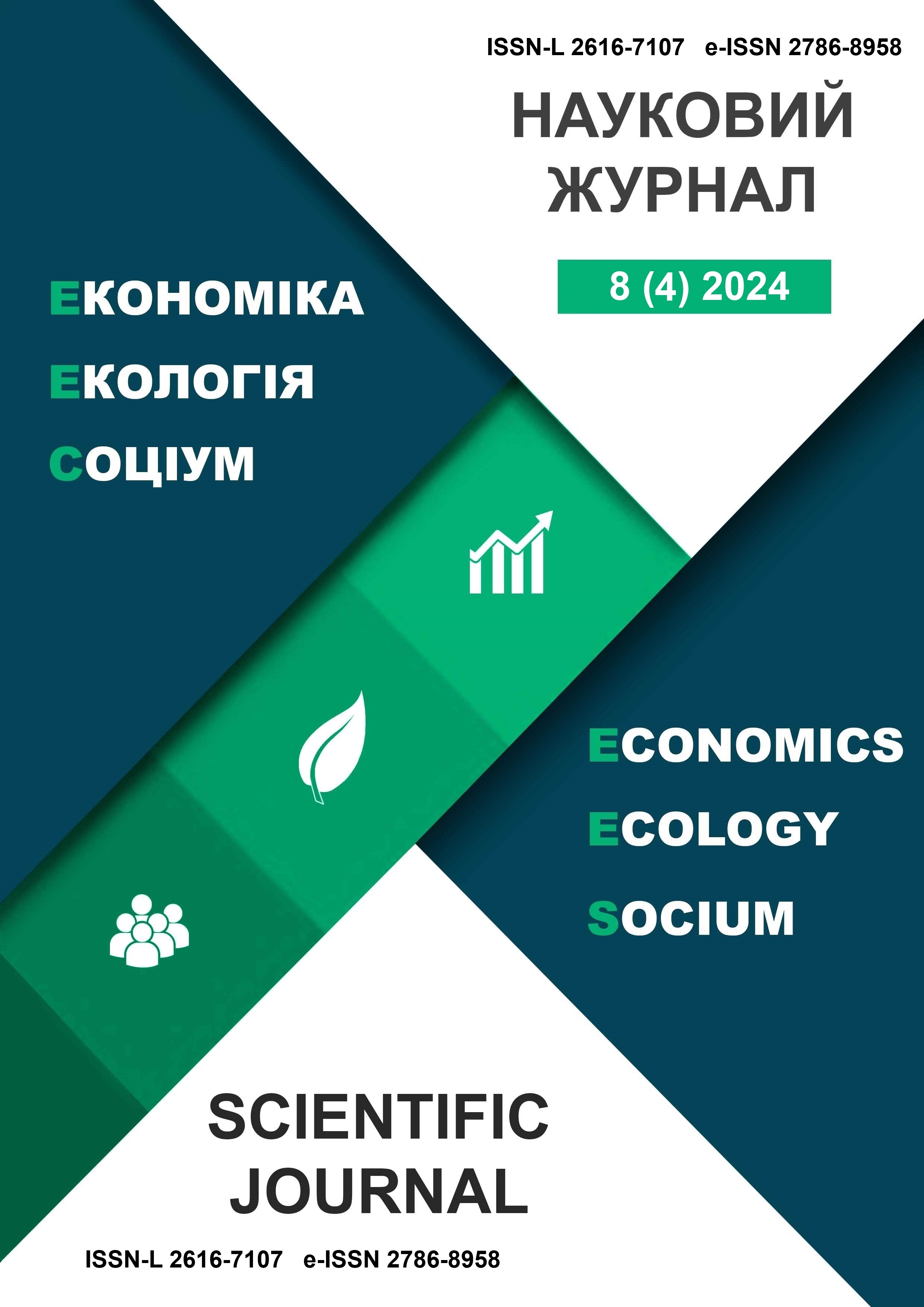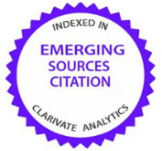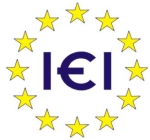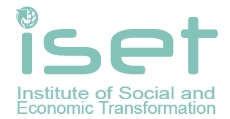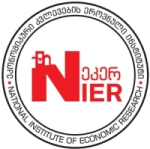Strategic Management of Sustainable Economic Development in Transport and Logistics Sector Companies
Abstract
Introduction. The impact of the economic crisis caused by the COVID-19 pandemic and military actions make the issue of business viability in Ukraine relevant. Modern reality requires new management approaches based on sustainable development strategies. Crisis phenomena have seriously affected local and global logistics, disrupted supply chains, and caused changes in the transport and logistics sectors. The slow development of transport technologies and intermodal transport has reduced Ukraine’s potential and negatively affected its competitiveness. Therefore, effective strategic management for the sustainable economic development of transport enterprises is vital for overall economic development.
Aim and tasks. This study aims to analyse and formulate strategies for the sustainable economic development of transport enterprises, including challenges and innovative solutions, such as digitalisation and the development of smart transport systems.
Results. Current trends in the development of domestic and international freight transportation, along with the restoration of capacity in Ukraine, confirm the prospects of the industry and its promising prospects even in wartime. The analysis of the operating profitability of Ukrainian transport companies in 2018-2022 showed a negative value (-1.6%), indicating losses in the industry. However, in 2019-2021, there was steady growth, and in 2021, profitability increased to 5.8%. However, according to 2023 calculations, Ukraine has the lowest logistics performance index among neighbouring countries (2.70), indicating severe problems in logistics management and international competitiveness. Because the development of digital technologies in the transport sector creates conditions for their direct use in all sectors of the economy, it is only possible to formulate strategic development directions by considering the need to develop digital transport tools. The main trends in the transport sector have proposed a methodology for forming and implementing a sustainable economic development strategy for transportation companies.
Conclusions. The concept of strategic preparation and management of sustainable economic development is the most common practical application of the theoretical foundations of regional companies and fulfils the monitored part of their transport policy. Strategic models focused on adapting to modern challenges have been proposed to ensure the development of transport and logistics companies. Transport companies operate under constant changes in business environments that require flexibility and a mandatory management approach.
Keywords:
logistics, transport companies, strategies, sustainable development, transport market.References
Filipishyna, L., Hryshyna, L., Zhuvahina, I., Ponedilchuk, T., & Paska, I. (2020). Model scenarios of sustainable development strategy in formulation of mechanisms for enterprise support resources. Journal of Intelligent Economics, 14(1), 31–44. https://doi.org/10.13165/IE-20-14-1-02
Haas, T., & Sander, H. (2020). Decarbonizing transport in the European Union: Emission performance standards and the perspectives for a European Green Deal. Sustainability, 12(20), 8381. https://doi.org/10.3390/su12208381
Haski. (2024). Haski. https://haski.ua
Horoshkova, L., Khlobystov, І., Filipishyna, L., & Nekos, A. (2020). Environmental expenditure modelling for sustainable development strategies creation and implementation. In XIV International Scientific Conference “Monitoring of Geological Processes and Ecological Condition of the Environment” (Vol. 2020, pp. 1–5). European Association of Geoscientists & Engineers. https://doi.org/10.3997/2214-4609.202056085
Jacyna-Gołda, I., Shmygol, N., Gavkalova, N., & Salwin, M. (2024). Sustainable development of intermodal freight transportation through the integration of logistics flows in Ukraine and Poland. Sustainability, 16(1), 267. https://doi.org/10.3390/su16010267
Klimecka-Tatar, D., Ingaldi, M., & Obrecht, M. (2021). Sustainable development in logistics – A strategy for management in terms of green transport. Management Systems in Production Engineering, 29(2), 91–96. https://doi.org/10.2478/mspe-2021-0012
Kłodawski, M., Nehring, K., Jachimowski, R., & Lipińska, J. (2024). The impact of the intermodal terminal operation strategy on container train loading duration. Transport Problems, 19(2), 163–176. https://doi.org/10.20858/tp.2023.19.2.13
Kyrylenko, O., Zarubinska, I., Grashchenko, I., Lytvynenko, L., Savchenko, L., Semiryagina, M., Ovsak, O., Sadlovska, I., Bugayko, D., Novak, V., Razumova, K., & Kovalenko, Y. (2023). Problems and priorities of the economic integration of the transport systems of Ukraine and the EU (O. M. Palivody, Ed.). Condor.
Vienažindienė, M., Tamulienė, V., & Zaleckienė, J. (2021). Green logistics practices seeking development of sustainability: Evidence from Lithuanian transportation and logistics companies. Energies, 14(22), 7500. https://doi.org/10.3390/en14227500
Ministry of Infrastructure of Ukraine. (2018). Sustainable logistics strategy and action plan for Ukraine: Project for consideration. Retrieved from https://mtu.gov.ua/files/Logistics.pdf
Nehring, K., Lasota, M., Zabielska, A., & Jachimowski, R. (2023). A multifaceted approach to assessing intermodal transport. Scientific Journal of Silesian University of Technology Series Transport, 121, 141–165. https://doi.org/10.20858/sjsutst.2023.121.10
Nikolaidou, A., Kopsacheilis, A., Gavanas, N., & Politis, I. (2024). Assessing the EU climate and energy policy priorities for transport and mobility through the analysis of user-generated social media content based on text-mining techniques. Sustainability, 16(10), 3932. https://doi.org/10.3390/su16103932
Penev, N., Shyriaieva, L., Legeza, D., Merkulov, M., & Honcharova, I. (2024). Marketing analysis of multimodal transportation dynamics in logistics infrastructure. E3S Web of Conferences, 558, 01030. https://doi.org/10.1051/e3sconf/202455801030
Plötz, P., Wachsmuth, J., Gnann, T., Neuner, F., Speth, D., & Link, S. (2021). Net-zero-carbon transport in Europe until 2050: Targets, technologies, and policies for a long-term EU strategy. Fraunhofer-Gesellschaft. https://doi.org/10.24406/publica-fhg-300934
Shkarupa, O., Vlasenko, D., Vesperis, S., Treus, A., & Juhaszova, Z. (2021). Strategic management for sustainable decisions in business: A case of greening the transport companies. Problems and Perspectives in Management, 19(4), 311–324. https://doi.org/10.21511/ppm.19(4).2021.25
State Statistics Service of Ukraine. (2023). Transport of Ukraine - 2022: Statistical collection. Kyiv: State Statistics Service of Ukraine. https://stat.gov.ua/en
Stfalcon LLC. (2024). https://stfalcon.com/uk/industries/logistics
Stupnytskyi, V., Filipishyna, L., Chumak, O., Gonchar, V., Komandrovska, V., & Iefimova, G. (2023). Environmental compliance and business strategies practices of entrepreneurial ventures. E3S Web of Conferences, 408, 01025. https://doi.org/10.1051/e3sconf/202340801025
Tong, J., & Wang, Y. (2020). Air transport network optimization for global supply chains. Journal of Air Transport Management, 85, 101836. https://doi.org/10.1016/j.jairtraman.2020.101836
World Bank Group. (2023). Connecting to compete 2023: Trade logistics in an uncertain global economy - The logistics performance index and its indicators. Washington, D.C.: World Bank Group.
Xiaofang, W., & Guoli, O. (2011). Institutional economic analysis on EU transport policy change. In 2011 International Conference on Information Management, Innovation Management and Industrial Engineering (pp. 91–95). IEEE. https://doi.org/10.1109/ICIII.2011.28
If the article is accepted for publication in the journal «Economics. Ecology. Socium» the author must sign an agreementon transfer of copyright. The agreement is sent to the postal (original) or e-mail address (scanned copy) of the journal editions.
